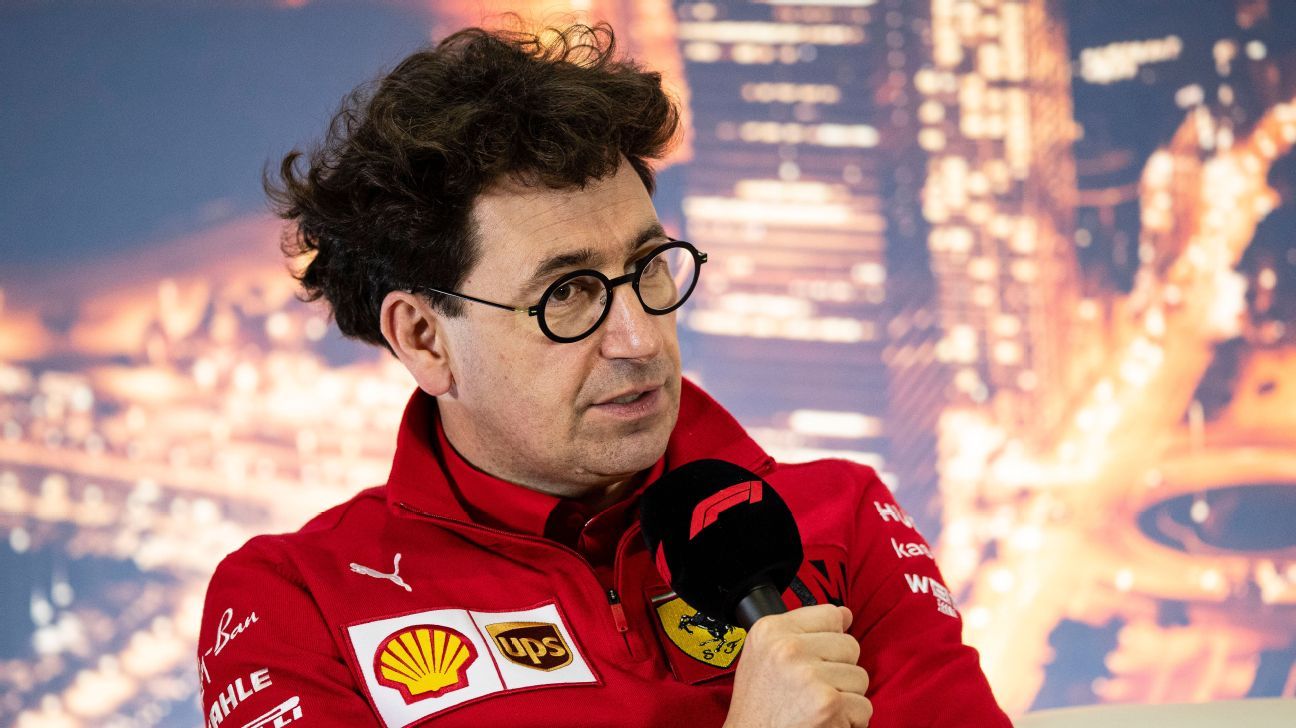Ferrari has warned Formula One against making knee-jerk changes to its financial regulations as a result of the coronavirus pandemic.
The global outbreak has resulted in the 2020 F1 season being put on hold, with no certainty over when racing will resume. The hiatus will be financially damaging for the sport and its teams, which generate a large proportion of their revenue from race-hosting fees and broadcast rights.
Coronavirus: Postponements and cancellations in sport
The teams have already agreed to delay the introduction of new technical regulations by a year to 2022, but further cost-cutting talks are still underway. One of the main focuses is on a budget cap, which is due to be introduced next year for the first time in F1 history.
Under regulations agreed last year the budget cap is due to be set at $175 million, but smaller teams are lobbying for lower caps of $145m in 2021 and $130m in 2022. Mattia Binotto is concerned that such a drastic cut to Ferrari’s budget would result in staff being made redundant, which, aside from the job losses, may also create issues under Italian employment law.
“In F1 we have all sorts of teams with different characteristics,” Binotto told the Guardian. “They operate in different countries, under different legislation and with their own ways of working. Therefore it is not simple and straightforward to make structural changes simply by cutting costs in a linear fashion.
“We are well aware that F1 and indeed the whole world right now is going through a particularly difficult time because of the Covid-19 pandemic. However, this is not the time to react in a hurry as there’s a risk of making decisions on the back of this emergency without clearly evaluating all the consequences.”
Binotto confirmed that Ferrari would have to make significant job cuts under a $145m budget cap.
“The $145 million level is already a new and demanding request compared to what was set out last June. It cannot be attained without further significant sacrifices, especially in terms of our human resources. If it was to get even lower, we would not want to be put in a position of having to look at other further options for deploying our racing DNA.”
He added that it was Ferrari’s “ethical duty” to look after its personnel.
“One should not forget that companies play a role in the social fabric of a nation,” he said. “They are not just there to make a profit.”
Red Bull team principal Christian Horner believes the best way to save money is to make sure the technical regulations do not encourage excessive spending and make cost-saving options available to smaller teams. As a result, he has suggested allowing customer teams in F1, which would be allowed to purchase an outdated chassis from a bigger team rather than designing their own.
Binotto agrees that of smaller teams are really struggling, a customer arrangement is preferable to bringing the budgets of all teams down to a lower level by regulation.
“If the current emergency really put the existence of some of our competitors in this sport in doubt and made it necessary to revise certain cornerstones, then Ferrari would be open to it. It’s not even sacrilegious, given it’s happened before in F1 and happens today in series such as [motorcycling’s] MotoGP.”
